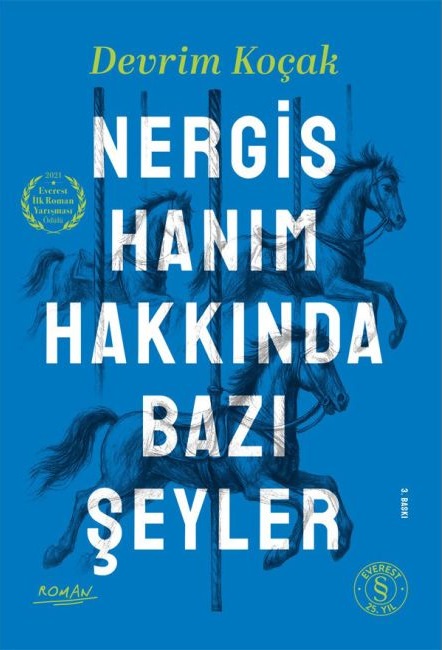To what extent does Achilles act out of strong emotions such as anger and revenge, making his decisions less than rational?
Achilles’ journey in the Iliad strikingly reveals the tension between emotion and reason, one of the most fundamental dualities of human nature. In Homer’s epic, Achilles acts under the influence of strong emotions, especially anger (menis) and revenge. The question of to what extent these emotions alienate his decisions from rationality and how the balance between emotion and reason should be established in human nature is at the center of a philosophical inquiry. Let’s examine this question in detail, through the character of Achilles, in a spectrum extending from Ancient Greek philosophy to modern existentialism, and the dialectic of emotion and reason and the moral dimensions of human nature.
Achilles’ Anger and the Overshadowing of Rationality
Achilles’ anger is defined as “menis” in the opening line of the Iliad; this is not ordinary anger, but a destructive and consuming emotion with a divine dimension. Agamemnon’s insult to him and taking Briseis from him is perceived as a threat to Achilles’ honor, and this leads him to withdraw from the battlefield. While this decision may seem like a rational protest at first glance, the underlying motivation is deep personal anger and pride. Achilles’ reaction demonstrates how emotions can channel an individual’s drive to protect their value system (honor, glory). However, this anger endangers the collective interests of the Achaeans and leads to the deaths of thousands of warriors. Here, Achilles’ decisions emerge as the product of emotional reactivity rather than a rational cost-benefit analysis.
With the death of Patroclus, anger turns into a desire for revenge. Achilles’ actions in killing Hector and mistreating his corpse completely overshadow his rational judgment. Killing Hector is a quest for personal gratification rather than a strategic victory, and the treatment of the corpse is an emotional outburst that transcends moral boundaries. The Stoic philosopher Seneca defines anger as “a brief madness of the mind” (De Ira). In these moments, Achilles’ anger takes over his mind and drives him to a savagery that contradicts his own values. This shows that emotions, when left uncontrolled, can alienate the individual from both himself and society.
However, Achilles’ anger is not completely irrational. His anger is an expression of a moral framework based on values such as honor and friendship. Agamemnon’s injustice violates a universal principle of justice in Achilles’ eyes; Patroclus’ death, on the other hand, destroys the sacred bond of friendship. In this context, Achilles’ emotions are grounded in a rational foundation: His anger is a kind of moral reaction. The concept of the “middle way” (mesotes) that Aristotle proposed to Nicomachean Ethics is important here. According to Aristotle, anger can be a virtue when felt to the right extent and in the right context; but its excess leads to destructiveness as a moral flaw. Achilles’ anger exceeds this limit, making his decisions less rational and leading to tragic consequences.
The Philosophical Tension Between Emotion and Reason
Achilles’ anger provides a mirror for understanding the philosophical tension between emotion and reason. In ancient Greek philosophy, Plato in the Republic likens the human soul to a chariot: Reason is the driver; emotions (especially anger and desire) are the horses that must be harnessed. Achilles’ anger is the horses getting out of control; reason loses its ability to direct its emotions. The Stoics, on the other hand, argue that emotions should be completely suppressed because emotions cloud the pure judgment of reason. Epictetus says, “A person who is angry ceases to be a slave to his own reason.” Achilles’ treatment of Hector’s corpse confirms this Stoic perspective: Anger temporarily destroys his moral center.
In modern philosophy, this tension is addressed differently. Kant argues that moral actions should only flow from duties based on reason (Groundings of the Metaphysics of Morality). Achilles’ anger is invalid as a moral motivation in Kantian ethics because anger is based on a personal desire, not on a universal moral law. In contrast, existential philosophers, especially Kierkegaard and Sartre, argue that emotions are part of human freedom and authenticity. For Sartre, emotions express an individual’s attitudes toward the world and toward oneself (Sketch of the Emotions). Achilles’ anger demonstrates his commitment to values such as honor and friendship; it is part of his search for an authentic existence. However, this authenticity turns into tragedy when it ignores social and moral consequences.
The Balance of Emotion and Reason in Human Nature
So how should the balance between emotion and reason be established in human nature? This question lies at the intersection of philosophical ethics and psychology. Aristotle’s concept of the “middle way” provides a practical framework for achieving this balance. Anger should neither be suppressed completely nor expressed unbridled; it should be felt at the right time, to the right person, and to the right extent. Achilles finds this measure in his encounter with Priam. Priam’s plea transforms Achilles’ anger into compassion; this shows that his reason has reengaged and he has placed his feelings in a moral framework. This moment is an example of emotion and reason working in harmony: Achilles recognizes both his own pain and Priam’s pain, and this empathy leads him to a rational act of compassion.
Modern neuroscience and psychology help us understand this balance on a biological and cognitive level. Daniel Kahneman’s “fast and slow thinking” model shows that emotions are fast, intuitive reactions, while reason is a slow, analytical process. Achilles’ anger is a product of the fast system; his encounter with Priam causes the slow system to step in and re-evaluate emotions. This suggests that balance in human nature is possible through awareness of emotions and guidance from reason.
Philosophically, the balance between emotion and reason can be achieved through the individual’s self-awareness (gnothi seauton) and the development of moral self-discipline. As Heidegger points out in Being and Time, a person must confront their emotions in order to understand their existential situation; however, this confrontation must be done in the light of reason. Achilles’ tragedy stems from the lack of this confrontation; his encounter with Priam shows that this confrontation is possible.


